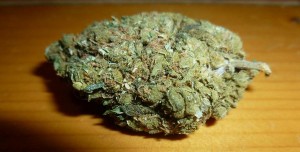
The Genny Barbour who would arrive at school was docile, attentive and pleasant. The Genny Barbour who would step off the bus at the end of the day was irritable and aggressive. On the worst days, her arms would be covered with self-inflicted bruises from trying to escape the chair used to restrain her.
Roger and Lora Barbour of Maple Shade say they know what was happening to their 16-year-old daughter, who has epilepsy and autism: her medicine was wearing off during the school day.
The problem is that Genny’s medicine is medical marijuana, and school officials say it’s illegal to administer it to her on school grounds.
It’s prompted a landmark legal battle that could reverberate in New Jersey and beyond. The Barbours are suing for their daughter’s right to use medicinal marijuana in school, while attorneys for the Maple Shade school district say doing so would run afoul of the law because marijuana is still considered a controlled dangerous substance by the federal government with no medicinal value.
“She could have Valium or oxycodone, but not medical marijuana. Other children can take their medicine. My daughter cannot,” Roger Barbour said. “My daughter is a citizen of this state, and this is a violation of her state and federal constitutional rights.”
Genny had long suffered from frequent and severe seizures because of her medical condition, leading the Barbours to join a small but growing group of desperate parents in the country who have turned to marijuana as a last-resort treatment for their relentlessly sick children. In August, Genny began taking an eye dropper-sized dose of her mother’s homemade cannabis oil in a small glass of cola in the morning, after school, and before bedtime. The number of seizures diminished, except in the afternoon. Her doctor recommended she also take a fourth dose with lunch, according to her medical records.
When her parents asked permission, the answer was a fast and flat no from the Maple Shade school district and the Larc School, the private school Genny attends for children with developmental disabilities in Bellmawr, according to court records.
The Barbours say in nine months, edible cannabis appears to have achieved what brain surgery, dozens of pharmaceuticals and a restricted diet have failed to deliver for their daughter: control over the frequency and intensity of her seizures. Cannabis has enabled Genny to be more attentive, verbal, and calm enough to enjoy her favorite past times of curling up on the couch to watch Disney cartoons or listen to music.
“There has been a total change in my daughter,” Lora Barbour said. “She is more of a person.”
